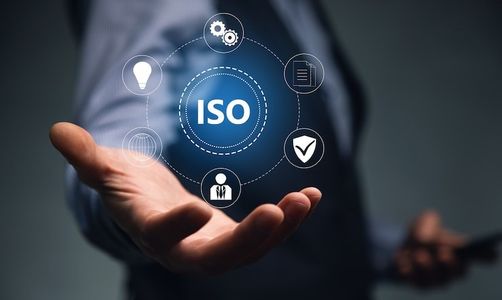ISO Certification 14001: Leading the Way in Environmental Responsibility
 Angel Aidel
27 May, 2025
4 mins read
4
Angel Aidel
27 May, 2025
4 mins read
4

Introduction: The Purpose of ISO 14001 Certification
ISO 14001 certification is the globally recognized standard for Environmental Management Systems (EMS). It provides organizations with a structured framework to manage their environmental responsibilities efficiently. As environmental concerns become more pressing and sustainability expectations rise, ISO 14001 helps companies minimize negative impacts, ensure regulatory compliance, and demonstrate their commitment to eco-conscious operations. Certification is no longer just about meeting legal requirements—it's about building a sustainable business model that resonates with customers, stakeholders, and communities.
Environmental Risk Identification and Management
A central component of ISO 14001 certification is the identification and management of environmental aspects and risks. The standard requires organizations to assess how their operations affect the environment, from resource consumption to emissions and waste. Training and implementation focus on evaluating environmental impacts and establishing controls to mitigate them. This risk-based approach ensures that environmental performance is continuously improved, helping businesses not only avoid fines but also reduce waste and lower operational costs.
Legal Compliance and Regulatory Alignment
ISO 14001 supports businesses in achieving full compliance with environmental laws and regulations. Through structured compliance evaluations, organizations stay updated with legal changes and avoid violations that can harm both reputation and finances. Certification also builds credibility with regulators, often resulting in smoother inspections and greater trust. Staying ahead of compliance through ISO 14001 ensures long-term sustainability and operational stability.
Employee Engagement and Environmental Culture
The standard places a strong emphasis on employee involvement in environmental management. ISO 14001 encourages organizations to provide environmental awareness training, integrate green practices into daily operations, and involve staff in improvement initiatives. This inclusive approach builds a culture where environmental responsibility becomes part of the organizational identity. Empowered employees contribute to more effective implementation and drive innovation in sustainable practices.
Market Reputation and Competitive Advantage
ISO 14001 certification signals to clients, partners, and investors that an organization is environmentally responsible. This improves brand image and can open up new business opportunities, particularly with environmentally conscious consumers and corporations that prioritize green supply chains. Certified companies often enjoy a competitive edge in tenders, international trade, and partnerships, where sustainability is a key criterion.
Conclusion: ISO 14001 as a Strategic Sustainability Tool
ISO 14001 certification is more than an environmental checklist—it is a strategic framework for responsible growth. By managing environmental risks, ensuring compliance, engaging employees, and enhancing market value, it helps organizations evolve into sustainable, forward-thinking entities. In a world where ecological integrity shapes success, ISO 14001 stands as a cornerstone of environmental leadership.
Written By:
Angel Aidel



Hotels at your convenience
Now choose your stay according to your preference. From finding a place for your dream destination or a mere weekend getaway to business accommodations or brief stay, we have got you covered. Explore hotels as per your mood.





